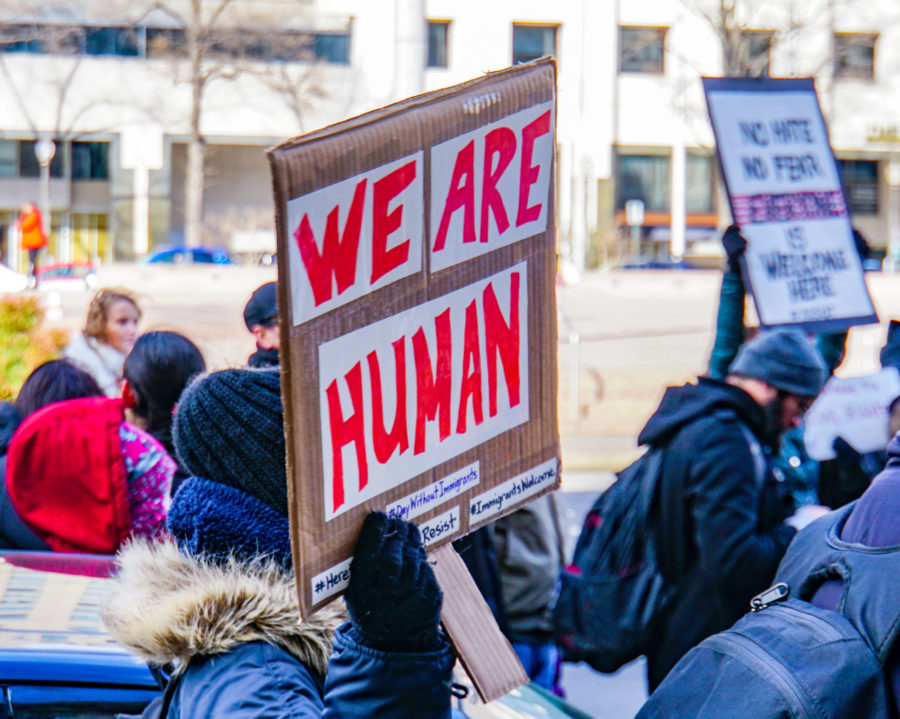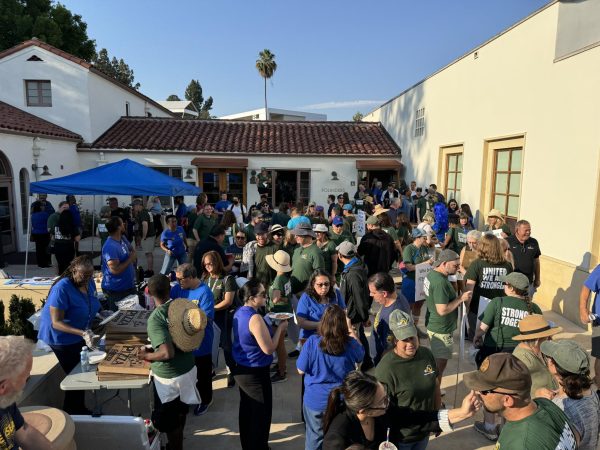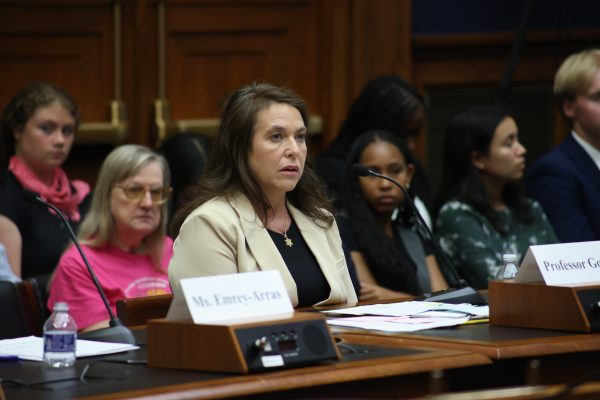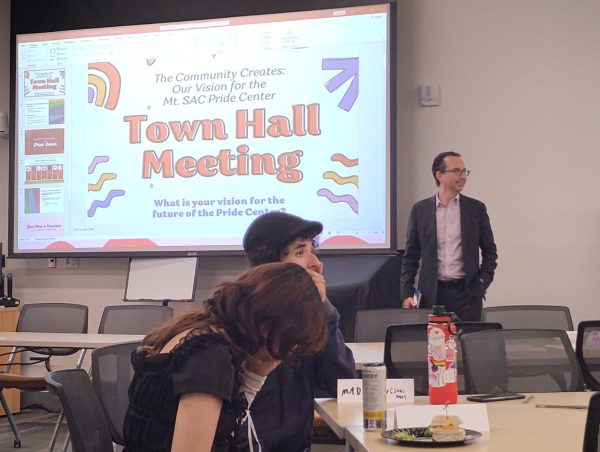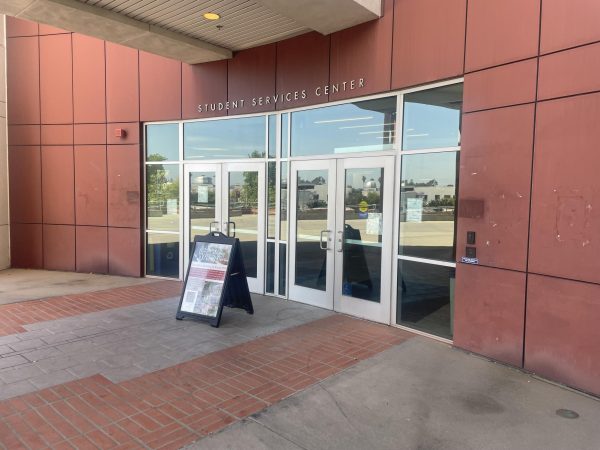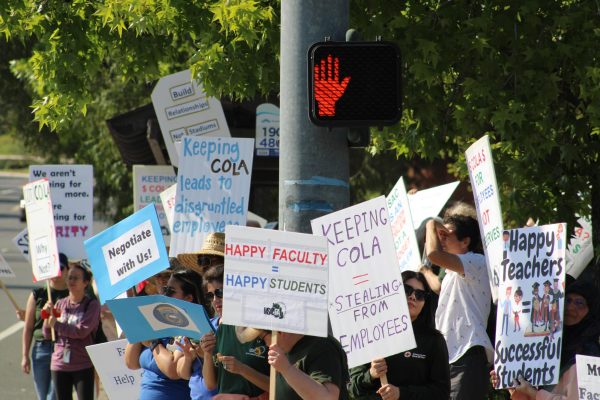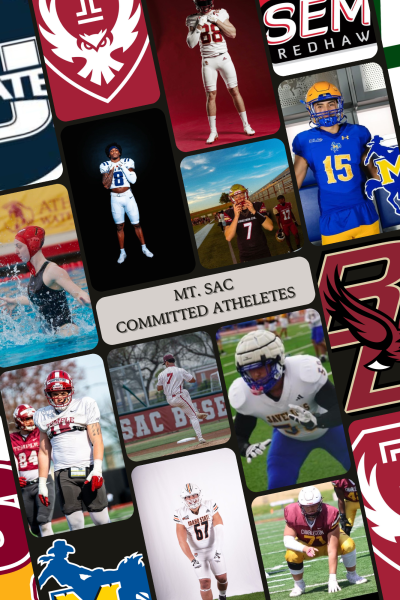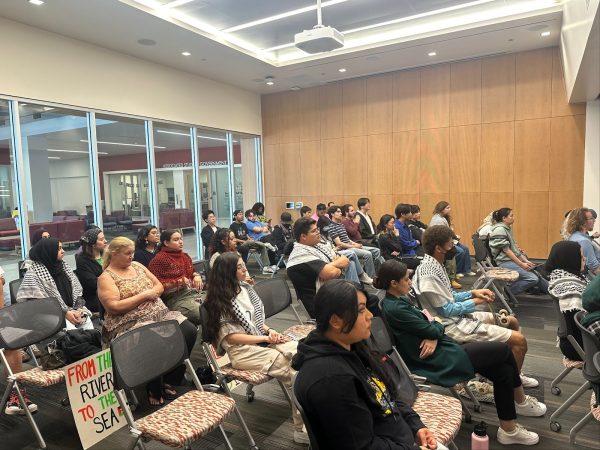Here’s what you need to know when traveling undocumented
CARECEN’s advice on do’s and don’ts when traveling without a U.S. citizenship
Immigration rally in 2017. Via Ted Eytan/Flickr
On March 7, the Central American Resource Center held a public hour-long Zoom meeting overview with Mt. SAC and Cal Poly Pomona students about the rights undocumented immigrants have while traveling.
Founded in 1983 due to the Salvadoran Civil War, CARECEN is an immigrant rights organization that advocates for human and civil rights, works for social and economic justice and promotes cultural diversity.
The Zoom meeting was hosted by David Lawlor and Mercedes Solaberrieta. Lawlor is an accredited representative of CARECEN and Solaberrieta is a paralegal for the organization.
The meeting began with the pair going over what a Real ID or what becomes the new driver’s license is. A Real ID requires a social security number, making undocumented immigrants ineligible to receive one.
When someone is traveling inside the United States, Lawlor explained that Customs and Border Protection has the authority to operate 100 miles from the country’s external boundaries. It just so happens that two-thirds of the country’s lives within the CBP’s authority to operate.
The safest way to travel in this country is by car, as long as you have a safe driver you can trust. A riskier option is to go by train or bus. A CBP officer is more likely to appear here than in a personal vehicle, and if questioned, Lawlor advised to remain silent. You have a right to refuse searches.
The most dangerous mode of traveling would be by plane. In fact, CARECEN recommends not flying due to an increased risk of questioning by immigration officers or Immigration and Customs Enforcement. Many people assume U.S. territories are easier to travel to, such as Puerto Rico. But Lawlor stated that this is not true for undocumented immigrants because the U.S. treats its territories as foreign ones.
Traveling outside the U.S. into a foreign territory is difficult and a consultation with a lawyer beforehand is recommended, but Solaberrieta still had general advice for those who are interested. The only people who can re-enter the U.S. are U.S. citizens, lawful permanent residents and certain visa holders. Permanent resident is the legal way of saying green card holders. Note that if you leave with a green card, beware of time restrictions due to it affecting your status. As an undocumented person, Solaberrieta mentioned not leaving the U.S. without talking to a trusted legal advisor.
In talking about the current political state of immigration through an attendee’s question, David Lawlor said, “In my opinion, President Biden is no friend of the immigrant. I think he only gives lip service.”
He was also very dissatisfied with the administration’s new asylum restriction. The two hosts made a list of what rights undocumented immigrants should know they have while traveling.
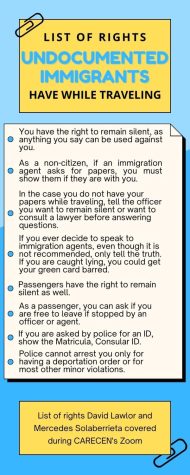
You have the right to remain silent, as anything you say can be used against you.
However, as a non-citizen, if an immigration agent asks for papers, you must show them if they are with you. In the case you do not have your papers while traveling, tell the officer you want to remain silent or want to consult a lawyer before answering questions. If you ever decide to speak to immigration agents, even though it is not recommended, only tell the truth. If you are caught lying, you could get your green card barred.
If you are a passenger, you have the right to remain silent as well. A passenger can ask if they are free to leave if stopped by an officer or agent. If you are asked by police for an ID, show the Matricula Consular ID. Police cannot arrest you only for having a deportation order or for most other minor violations.
Lawlor and Solaberrieta ended the meeting by answering individual questions that many Zoom attendees had. Many left the meeting thanking the pair for giving them more trust and knowledge in the subject of traveling while undocumented.


